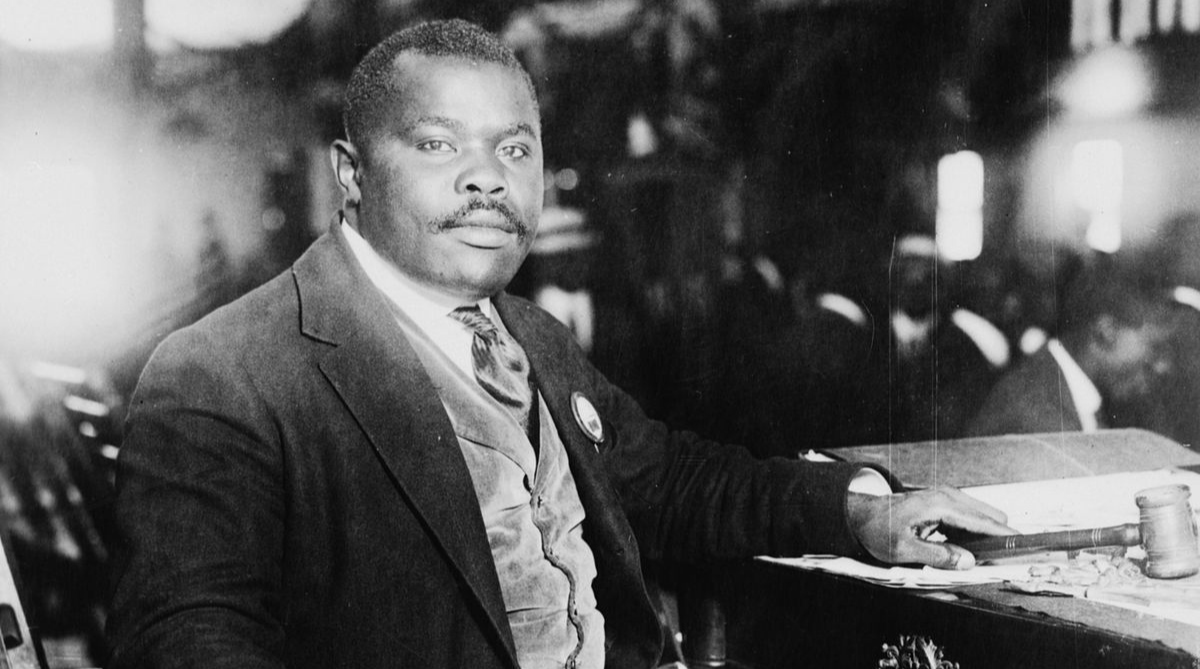Marcus Garvey
Write your awesome label here.

Marcus Garvey was a black nationalist born on August 17, 1887, in St. Ann's Bay, Jamaica. He was known as the face of pan-Africanism and played a major role in the “Back to Africa” movement.
Garvey was the last of 11 children born to Marcus Garvey, Sr. and Sarah Jane Richards. In 1903, he traveled to Kingston, Jamaica where he got exposed to activism and became involved with union activities. In 1914, Garvey founded the Universal Negro Improvement Association (UNIA) in Jamaica.
The UNIA sought to build a black-governed nation in Africa. He was able to grow the organization into one with multiple chapters in countries such as the United States, Cuba, the United Kingdom and others.
The UNIA sought to build a black-governed nation in Africa. He was able to grow the organization into one with multiple chapters in countries such as the United States, Cuba, the United Kingdom and others.
The first commercial venture of the UNIA was to establish the Black Star Line Steamship Corporation with the goal of creating an efficient mode of transportation, communication and trade among black people worldwide. The public could invest in the corporation by purchasing stock shares at five dollars each.
Garvey traveled to the United States in 1916. While spending time in the United States, he became a controversial figure to some, including J. Edgar Hoover. Hoover was the head of the FBI, and he established a special counter-intelligence program called COINTELPRO, to neutralize political figures such as Garvey.
COINTELPRO sought to stop the rise of a “black messiah,” that could unify black people. Therefore, Hoover hired the FBI’s first Black agent just to infiltrate the UNIA and monitor Garvey.
COINTELPRO sought to stop the rise of a “black messiah,” that could unify black people. Therefore, Hoover hired the FBI’s first Black agent just to infiltrate the UNIA and monitor Garvey.
However, Garvey was deported back to Jamaica after being convicted of mail fraud. After being deported back to Jamaica, Garvey established the People’s Political Party (PPP) during the late 1920s. The PPP was Jamaica's first modern political party and the group sought to defend the interests of Jamaica’s predominantly black population.
The party hoped to address issues such as official representation in the British Parliament, judicial reform, a Jamaican university, minimum wage, land reform, a government-run electrical system, and public high schools and libraries.
The party hoped to address issues such as official representation in the British Parliament, judicial reform, a Jamaican university, minimum wage, land reform, a government-run electrical system, and public high schools and libraries.
Although Garvey may have been viewed as an enemy by J. Edgar Hoover, that was not the case everywhere. His message of pride and dignity was an inspiration to his countless supporters and served as a precursor for the Civil Rights Movement.
Garvey died on June 10, 1940, in London, England after suffering several strokes. In 1964, Marcus Garvey was proclaimed a national hero by his native country of Jamaica.
Garvey died on June 10, 1940, in London, England after suffering several strokes. In 1964, Marcus Garvey was proclaimed a national hero by his native country of Jamaica.
Write your awesome label here.
Write your awesome label here.
Write your awesome label here.
Write your awesome label here.


